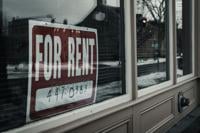(The Center Square) – The Seattle City Council has rejected a bill intended to offer zoning incentives for up to 35 redevelopments that partner with local nonprofits to boost housing in displaced neighborhoods.
Council Bill 120750 would have established a term-limited, pilot program that would have given community-led affordable housing developments the ability to build larger or denser residential projects than the city’s land use code would otherwise allow. The bill was rejected with only two councilmembers voting yes on the housing incentive package.
Councilmember Tammy Morales, who sponsored the bill, said the bill focused on helping community-based organizations develop and create cultural services, housing, and affordable commercial space in neighborhoods that previously had restrictive covenants.
Applicants would have qualified for the pilot-program by allowing at least 30% of their housing units at 60% of the Seattle area median income of $115,400.
The proposed pilot program did not seek to use funds from the recently passed Seattle affordable housing levy that is anticipated to collect $970 million through 2030, or $138.6 million annually. This tax levy starts at 45 cents per $1,000 of assessed value, or $383 a year for the median Seattle homeowner.
Some of the councilmembers rejected the bill, saying it does not align with the city’s 20-year comprehensive plan to improve access to affordable housing.
“There is no question that we need and should support housing of all types across Seattle from affordable to market rate. Our efforts, however, must be part of a cohesive plan that leverages all of the city’s investments and strategies,” Councilmember Maritza Rivera said at Tuesday's council meeting. “This is best accomplished through the 20-year comprehensive plan that the city is engaged in”
Rivera said Council Bill 120750 bypasses the plan and would create a divided system.
Morales argued that the comprehensive plan is a policy guideline and is not legislation that actively helps increasing affordable housing in the city.
“To wait until the Comprehensive Plan update is transmitted to council at the end of this year is not taking our housing crisis seriously,” Morales said in a social media post following the council meeting. “The Comprehensive Plan sets a policy guideline – the way we implement it is to pass legislation.”
Fellow City Councilmember Joy Hollingsworth voted no on the bill, arguing that the bill could make Seattle’s diverse neighborhoods “whiter and wealthier” by allowing incentives for building market rate housing that is more expensive.
Later in the council meeting, councilmembers passed an extension for properties participating in the multifamily tax exemption that would have otherwise expired at the end of the year.









